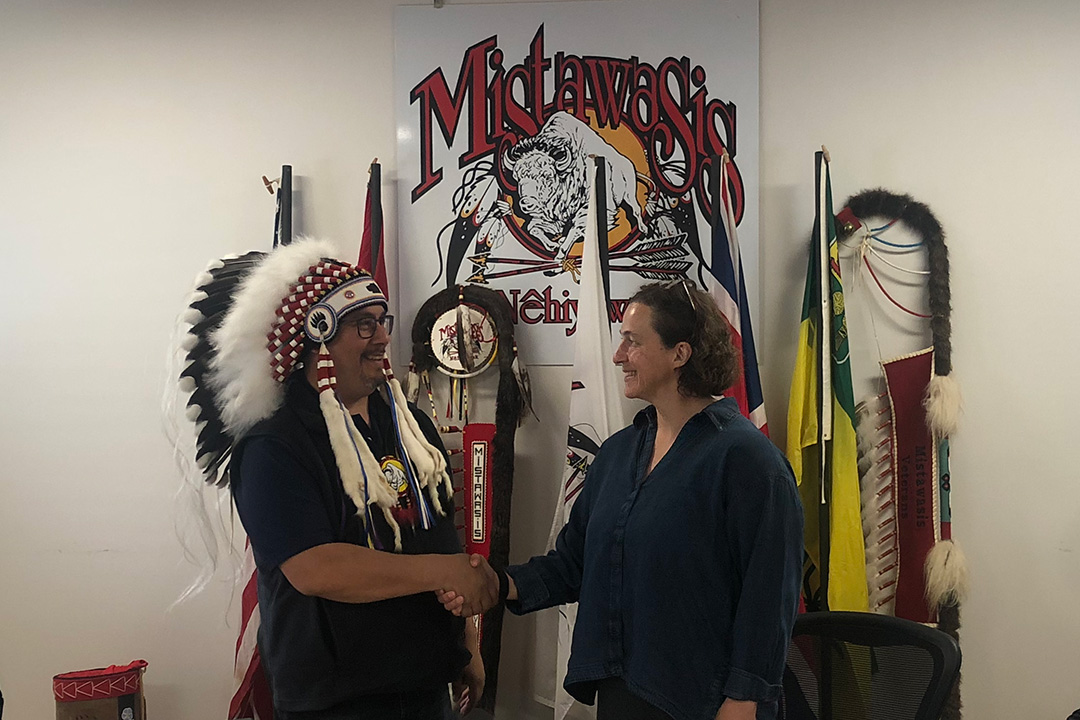
USask AgBio, Mistawasis Nêhiyawak sign research collaboration agreement
The University of Saskatchewan (USask) College of Agriculture and Bioresources (AgBio) and the First Nation of Mistawasis Nêhiyawak have signed an Asota, a Cree word which translates to “Make a Promise.”
Through the Memorandum of Understanding (MOU) agreement signed in a ceremony on June 7, the college and Mistawasis Nêhiyawak will explore opportunities for joint scholarship and research collaborations in the areas of Indigenous well-being, community development, and environmental stewardship.
“In recent years, Mistawasis Nêhiyawak has begun to exercise greater authority over our lands, including environmental considerations into our agricultural agreements and development to our lands,” said Councillor Steven Johnston of Mistawasis Nêhiyawak, a First Nation community located 120 kilometres north of Saskatoon.
“In the last 10 years Mistawasis has worked with neighbours, non-government organizations, institutions, and various levels of government on shared concerns for our Reserve lands and our traditional territories. Now as a member of the Mistawasis family we would like the College of Agriculture and Bioresources to walk with us for a shared good future.”
The agreement builds on the existing relationship between the college and Mistawasis Nêhiyawak.
“Working alongside Indigenous communities to identify challenges and support the development and implementation of shared solutions is an important part of the work we do in the College of Agriculture and Bioresources,” said Dr. Angela Bedard-Haughn (PhD), dean of the college. “We are grateful for the opportunity to walk with Mistawasis Nêhiyawak First Nation as they build management strategies for their lands.
One project the College of Agriculture and Bioresources and Mistawasis Nêhiyawak are collaborating on is the Bridge to Land Water Sky project, the first Indigenous-led living lab in Canada that launched in 2022. The goal of the project is to develop a farming system that has farmers and First Nations working together to improve agricultural practices while honouring Indigenous values, communities, treaties, lands, and resources.
Dr. Melissa Arcand (PhD) with the College of Agriculture and Bioresources is one of the researchers involved in the living lab project. Arcand will be working with the group to protect biodiversity and improve soil and water quality.
Arcand is also working in partnership with Mistawasis Nêhiyawak and other organizations for the Indigenous Soil Health Learning Circles for Resilient Prairie Agroecosystems. The project aims to establish a network to share evidence-based, culturally significant outreach and education to improve prairie soil health, biodiversity, and soil organic matter for First Nations agroecosystems.
Mistawasis Nêhiyawak also has Asota agreements with the USask School of Environment and Sustainability, and the College of Arts and Science.

